Rare Antique Max Rösler Lidded Porcelain Tureen (Rodach, 1930)
Rare Antique Max Rösler Lidded Porcelain Tureen (Rodach, 1930)
Couldn't load pickup availability
Share
Rare antique Max Rösler porcelain tureen/lidded container box produced in Rodach, Bavaria starting with April 1st, 1930, amongst the very few remaining from that period before being taken over by Siemens [keep reading to hear the whole story].
If there`s one thing that I like about this piece, besides its age and that great little pink rose pattern specific to the 1930s, the delicately gold rim and the Art Deco handles, it’s really the story of the producer. At first research, it all felt like a story, the sort of story that you’d want to see it in a movie [if you are as passionate about that period as I am and would love to have some insights into life then].
So, the founder of the company, Max Rösler was born in 1840 in Dresden from a family of actors, his father Otto and mother Tina were working as actors at the Coburg Royal Theatre. He studied chemistry in Dresden and graduated in Munich - at the time, they were the places to be. He then went on to work on a chemical plant in Blasewitz (a district in Dresden) and by 1864, Max became a Chemist, Merchant and Technical Director at a chemical plant in Elbogen, near Karlsbad - pretty great for a 24 year old! At 28 he married Theodora and had four children and by 33, in 1873, our young Max became a Technical Director at the Franz Anton Mehlem Stoneware Factory in Bonn - Mehlem actually founded the company in the same year Max was born and his company was incorporated into Villeroy & Boch in 1920, just after the end of WWI.
In 1874, Max started working for the Mosaic Tiles Factory in Sinzig - south of Bonn, where they produced the most beautiful tiles, so do check them out - and few months later, as he was climbing the career ladder, he became a Technical and Commercial Director of the Wächtersbach Stoneware Factory - located East of Frankfurt.
By 1890, Max moved to Elbogen again, to work for the Springer Porcelain Factories and eventually in 1893 he and his family moved to Rodach near Coburg. One year later he registered his own company. He chose as a trademark the symbol of a hedge rose, part of the family crest derived from the name Roesler and production was kicked off in 1896 following a great success. After the end of WWI, during early 1920s, Max sold his shares of the company to a banking house run by the Arnold brothers (Bankhaus Gebrüder Arnold).
Following the 1929 crash of the stock market, the whole business was in collapse and eventually was closed in 1931 - and never quite recovered after that. So, in 1938, amidst the political internal changes, the company was taken over by Siemens and for a short while it still produced earthenware, until 1940 when it was forced to produce porcelain insulators. After 1945, the factory produced basic earthenware items, however, as of 1957, the ceramic production was halted and the whole factory started was converted into a plastic processing plant [quite sad actually] and perhaps the final knock came in 1995 when Valeo took over this Siemens facility and began the production of car air conditioning systems.
Of course, in between all his career related events, life also happen to Max and his family and I think that’s the part worth to be on screen, but until then we can all just relish this beautifully handcrafted porcelain tureen, after all, all that remains of Max Roesler today except for the collectibles still around is his former residential building which is used as administrative building by the city council of Bad Rodach and of course a street which was named after the businessman that did so much for the town and its workers.
This tureen would be a more than great addition to your dinnerware and an even greater piece to have and pass around as family heirloom.
Product specifications
Country of manufacture — Germany
Condition —Excellent — This vintage/antique piece has wear marks. It may show traces of use and features a small chip [kindly check all pictures]
Restoration and Damage Details — Patina consistent with age and use.
Material — Porcelain
Size — 12 cm H x 24 cm L x 14 cm l
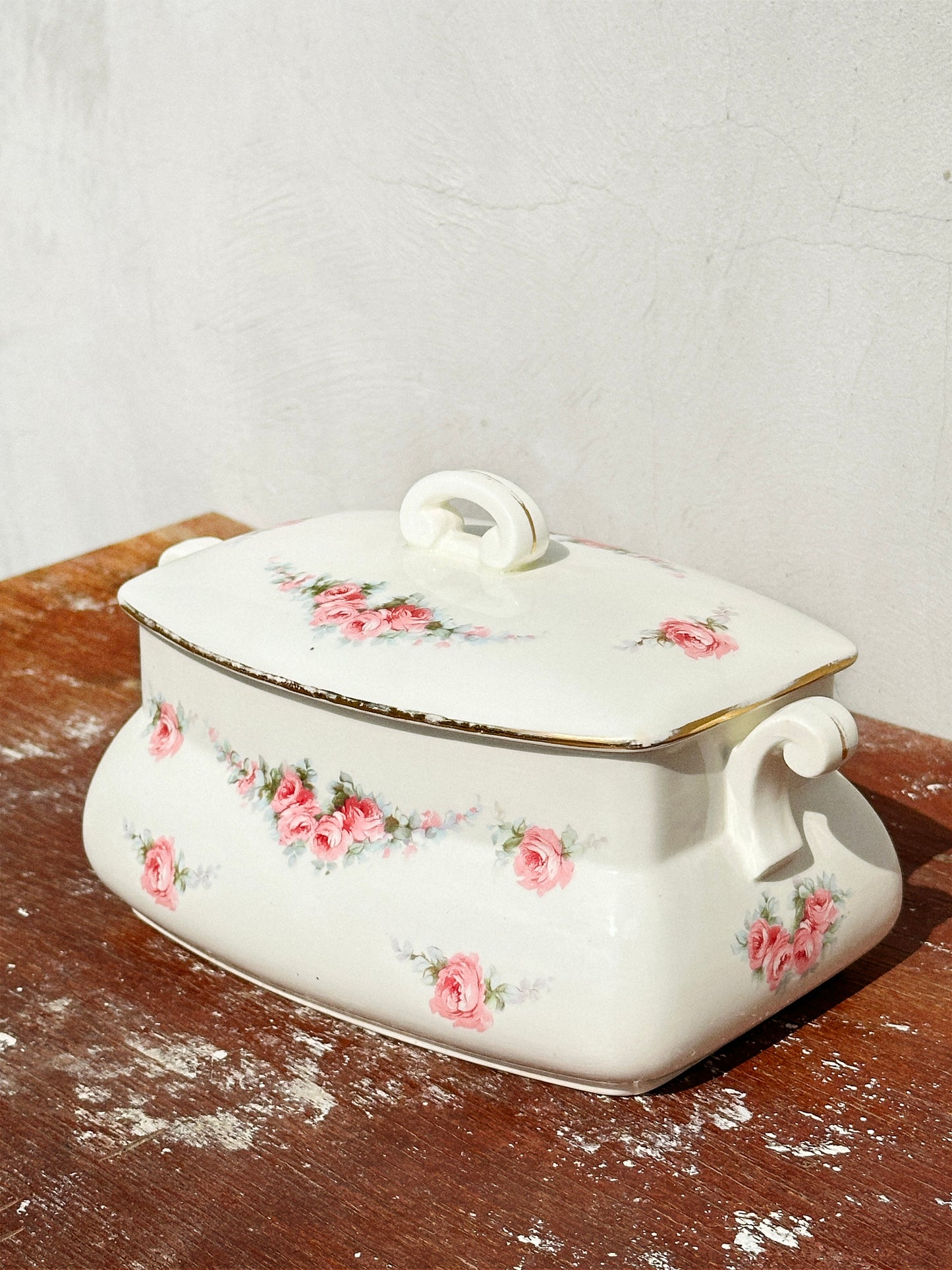
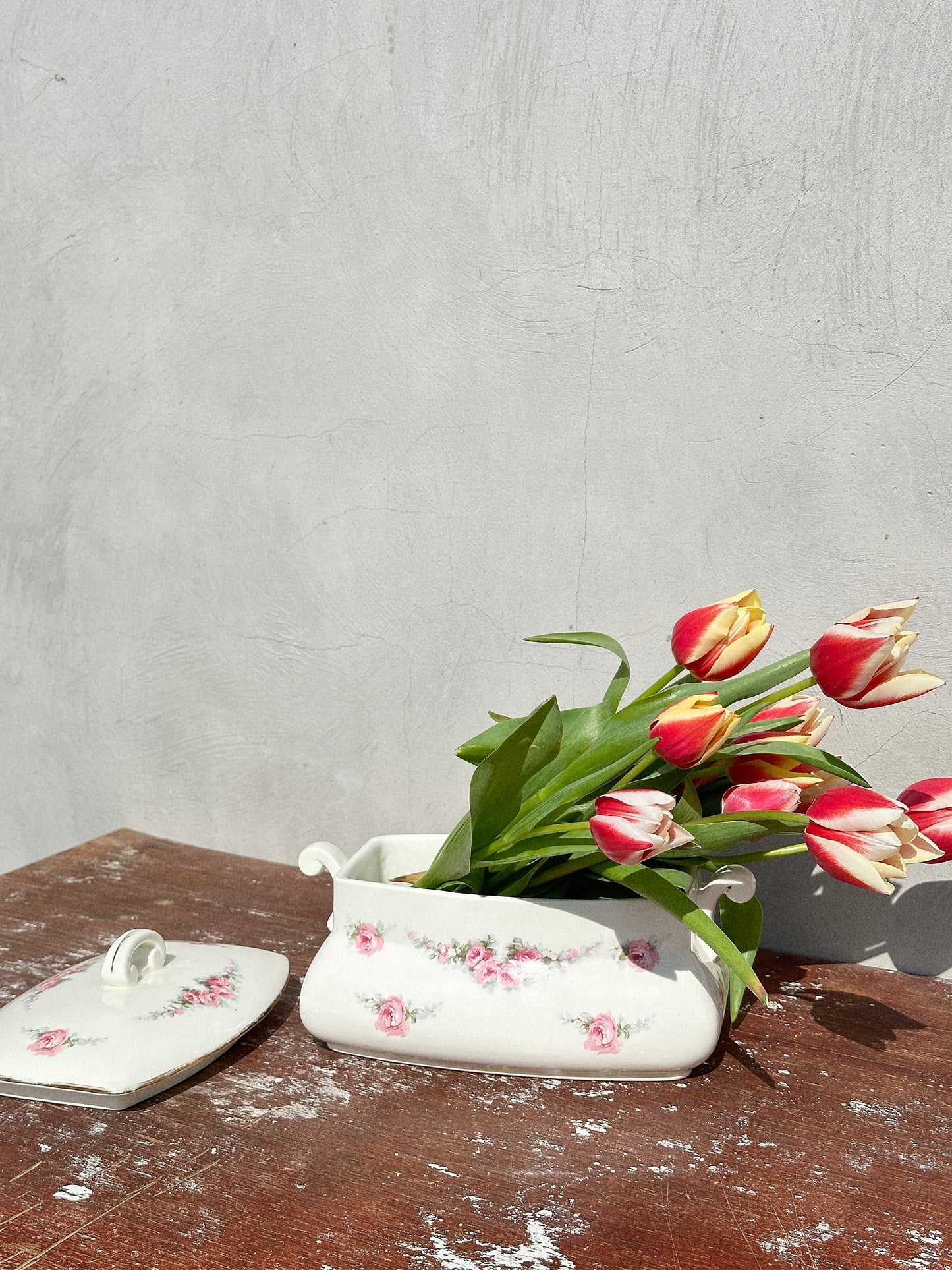
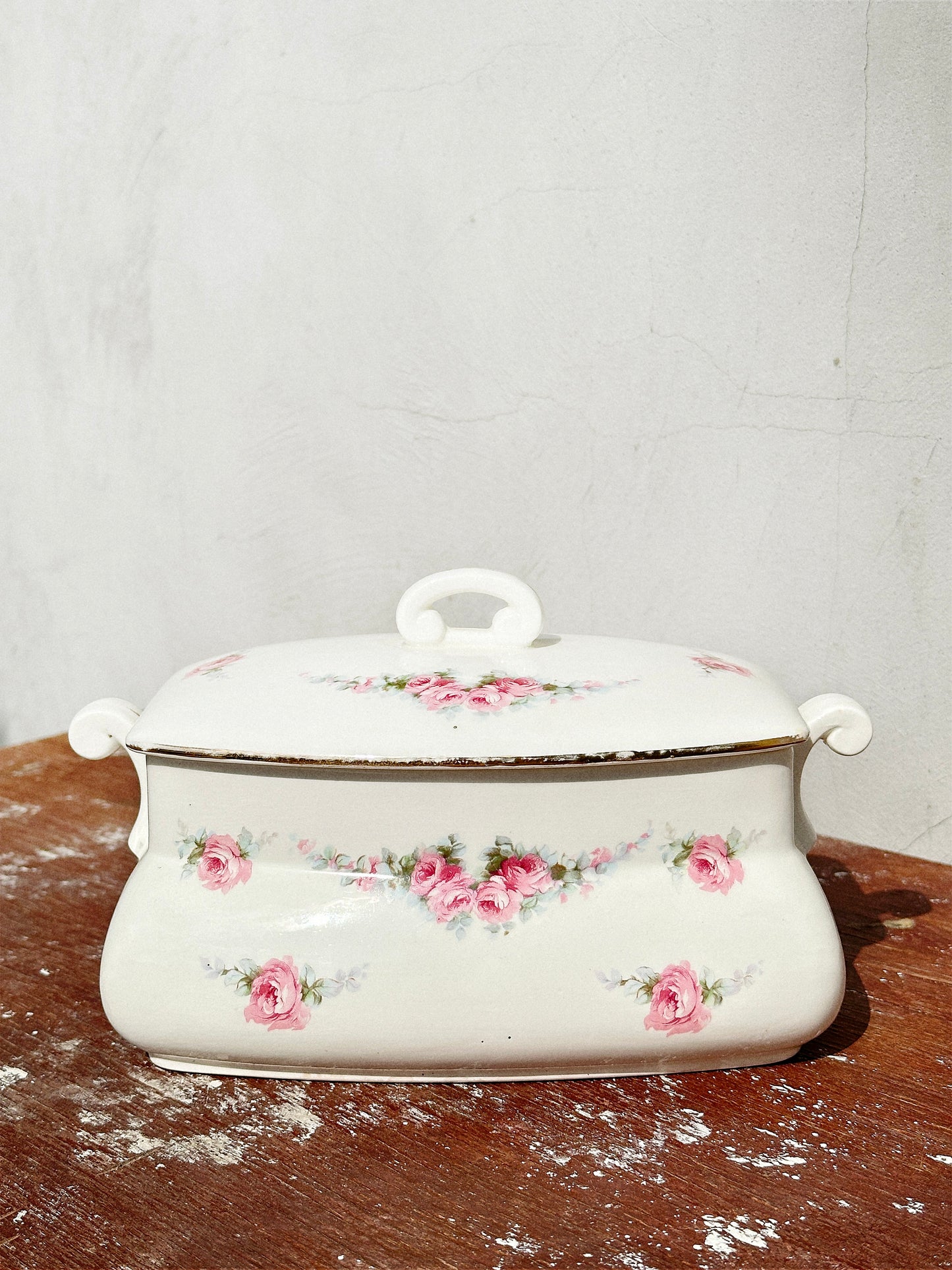
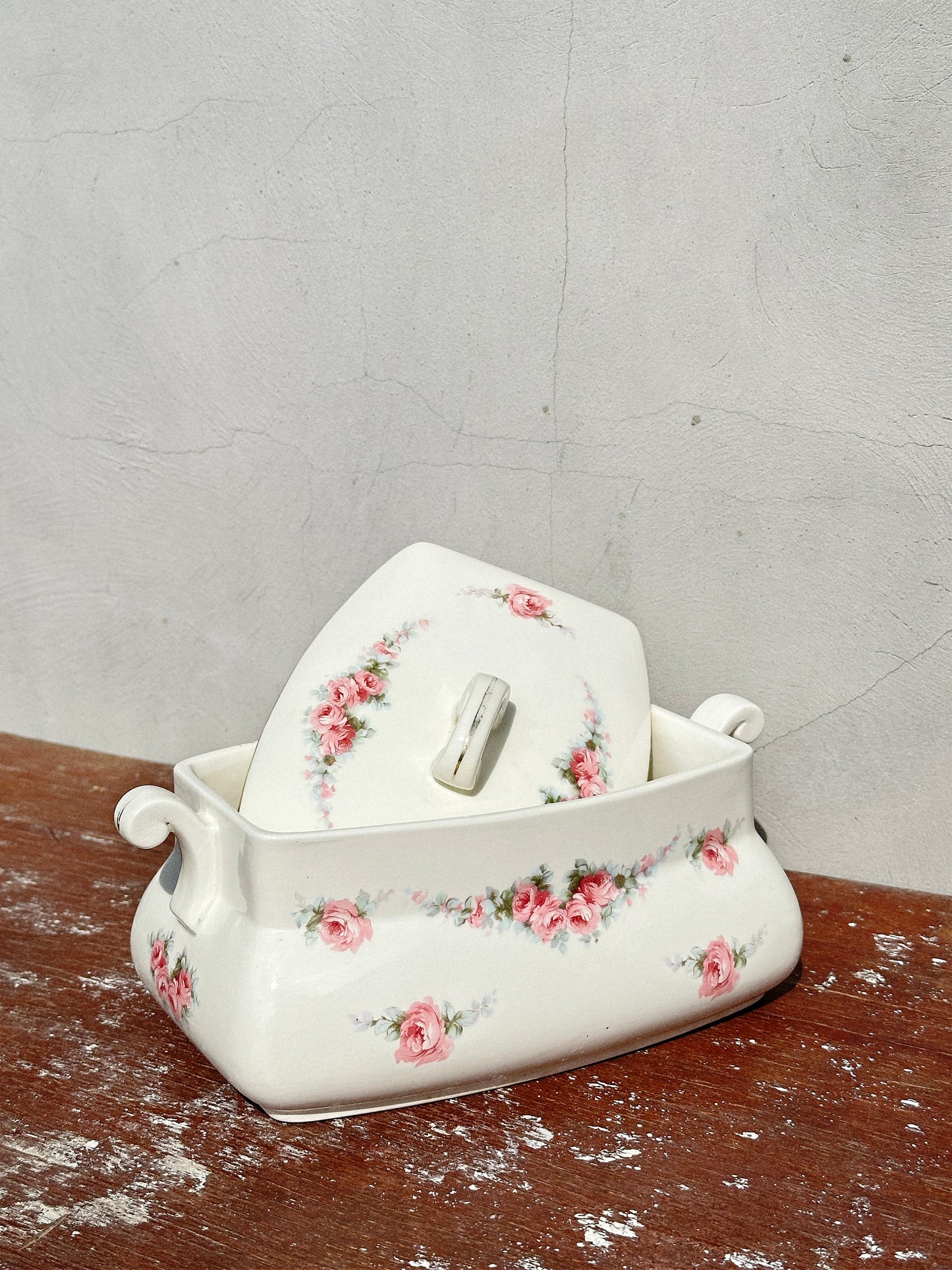
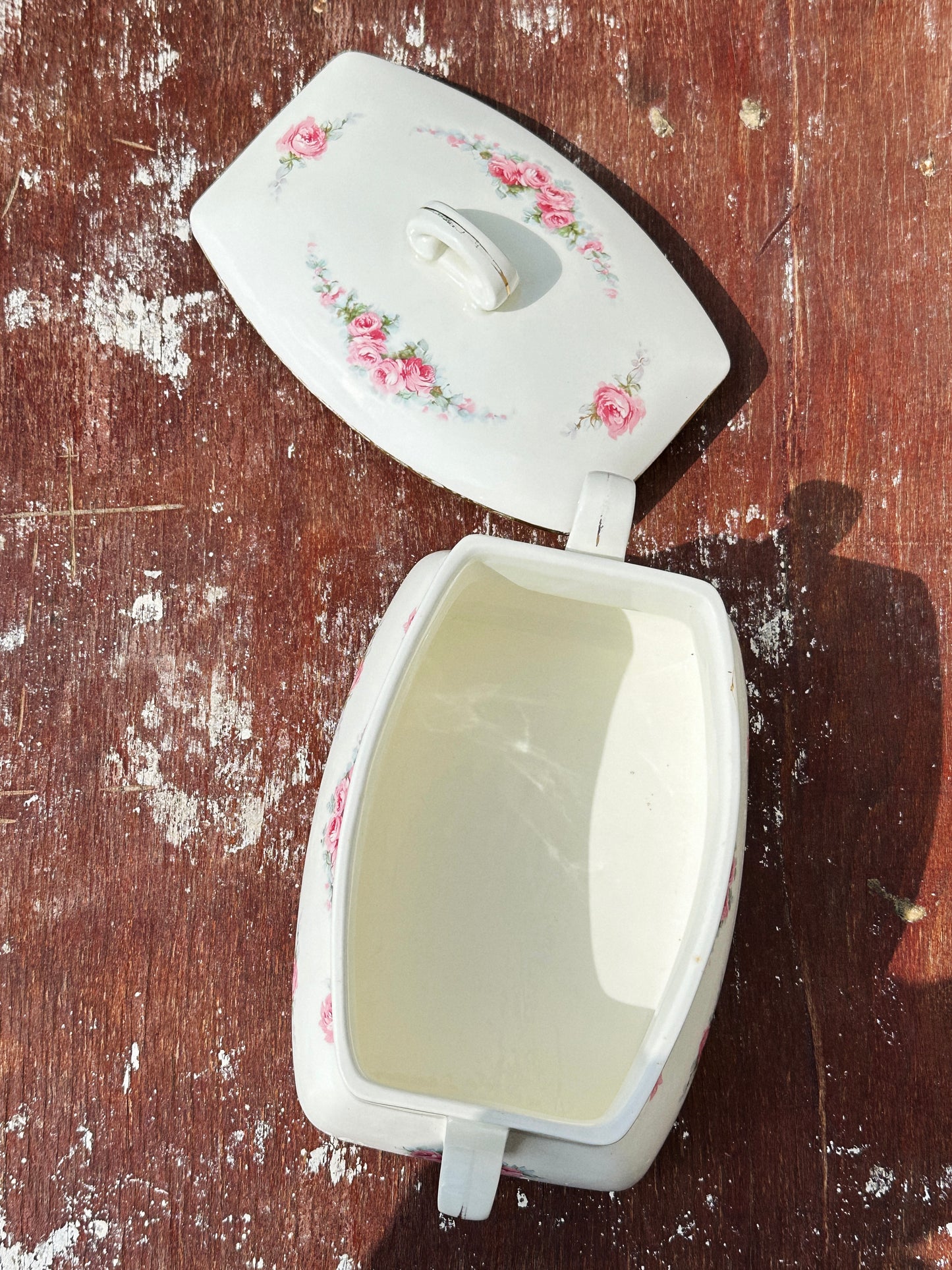
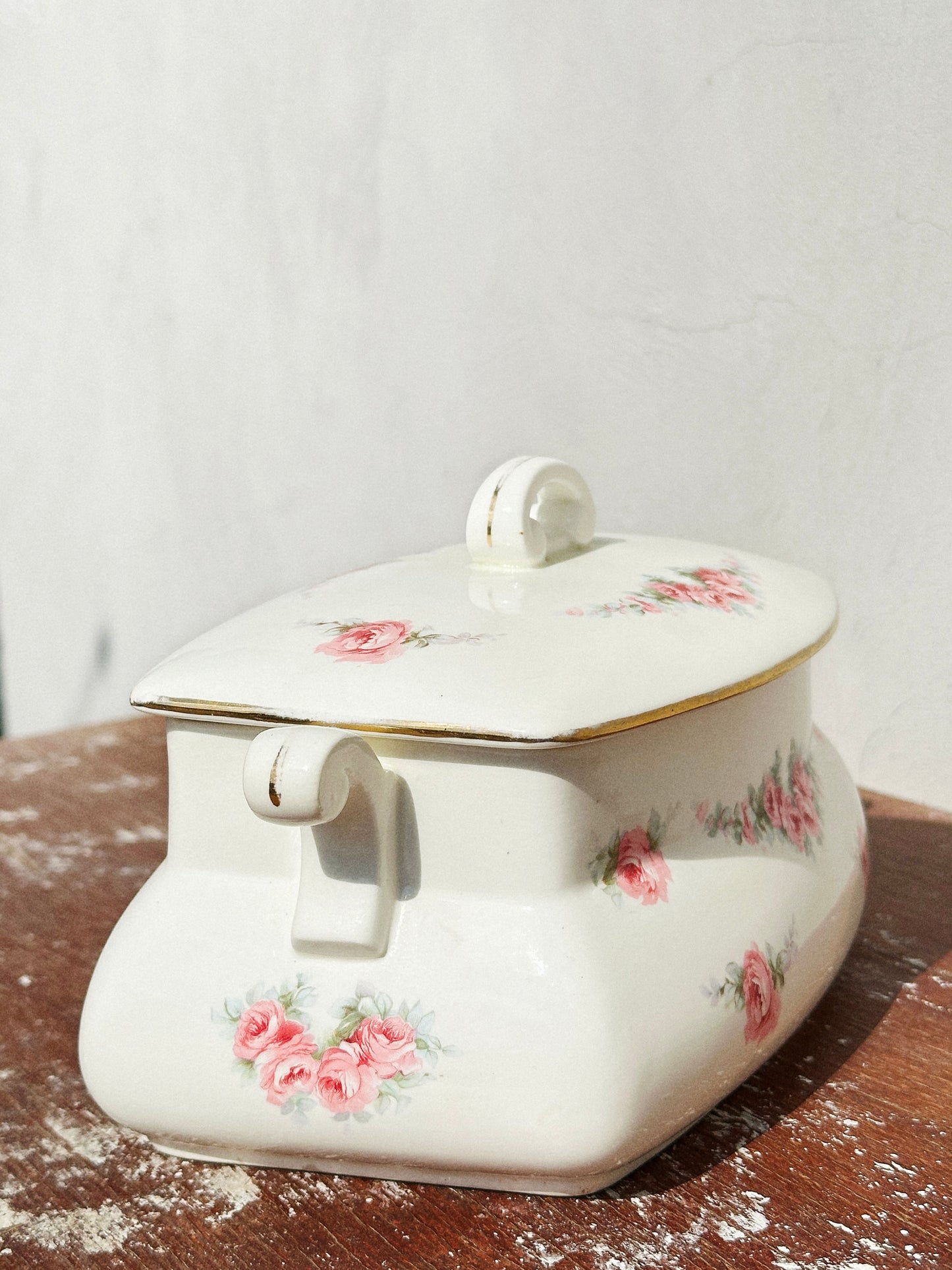
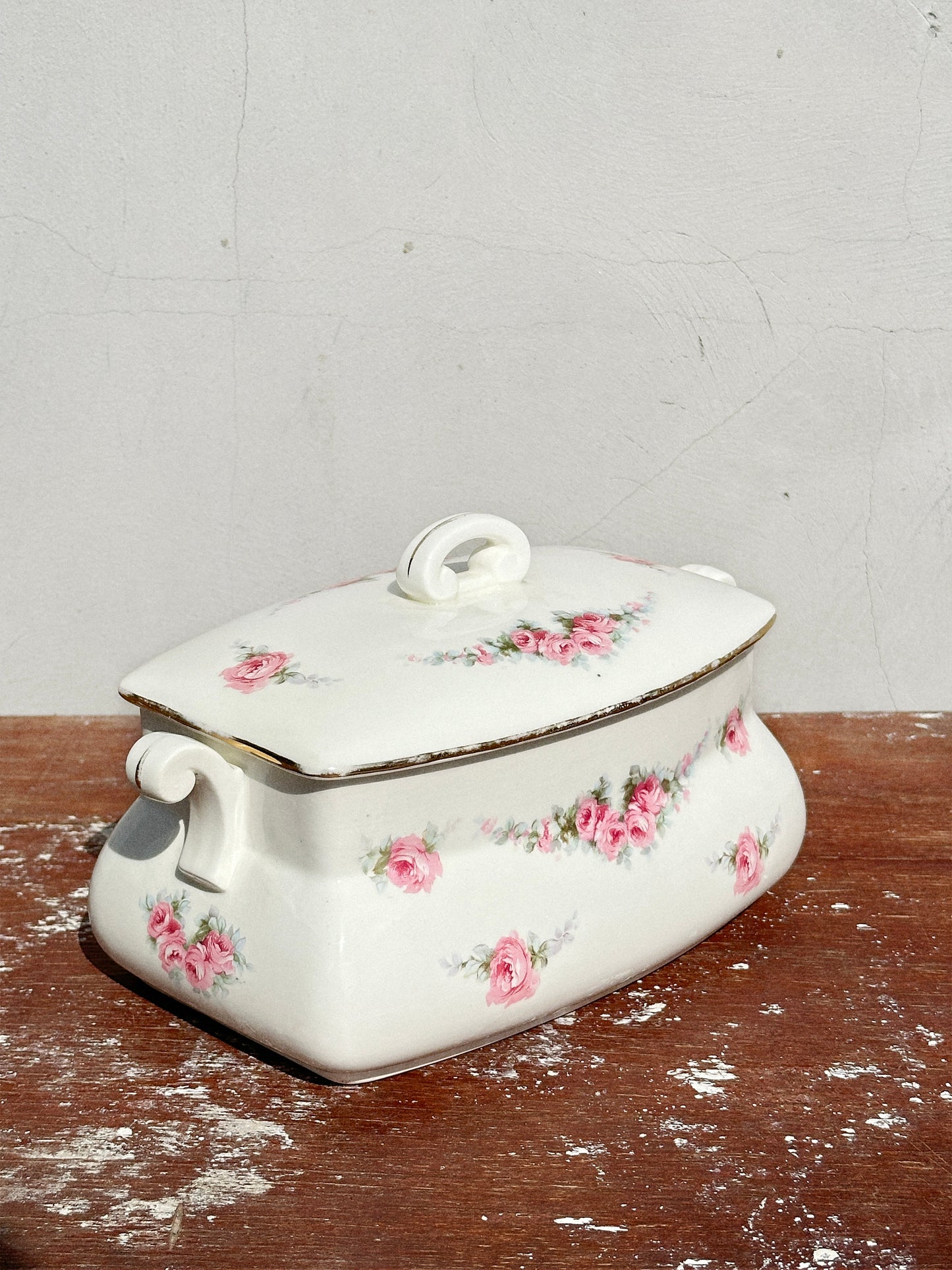
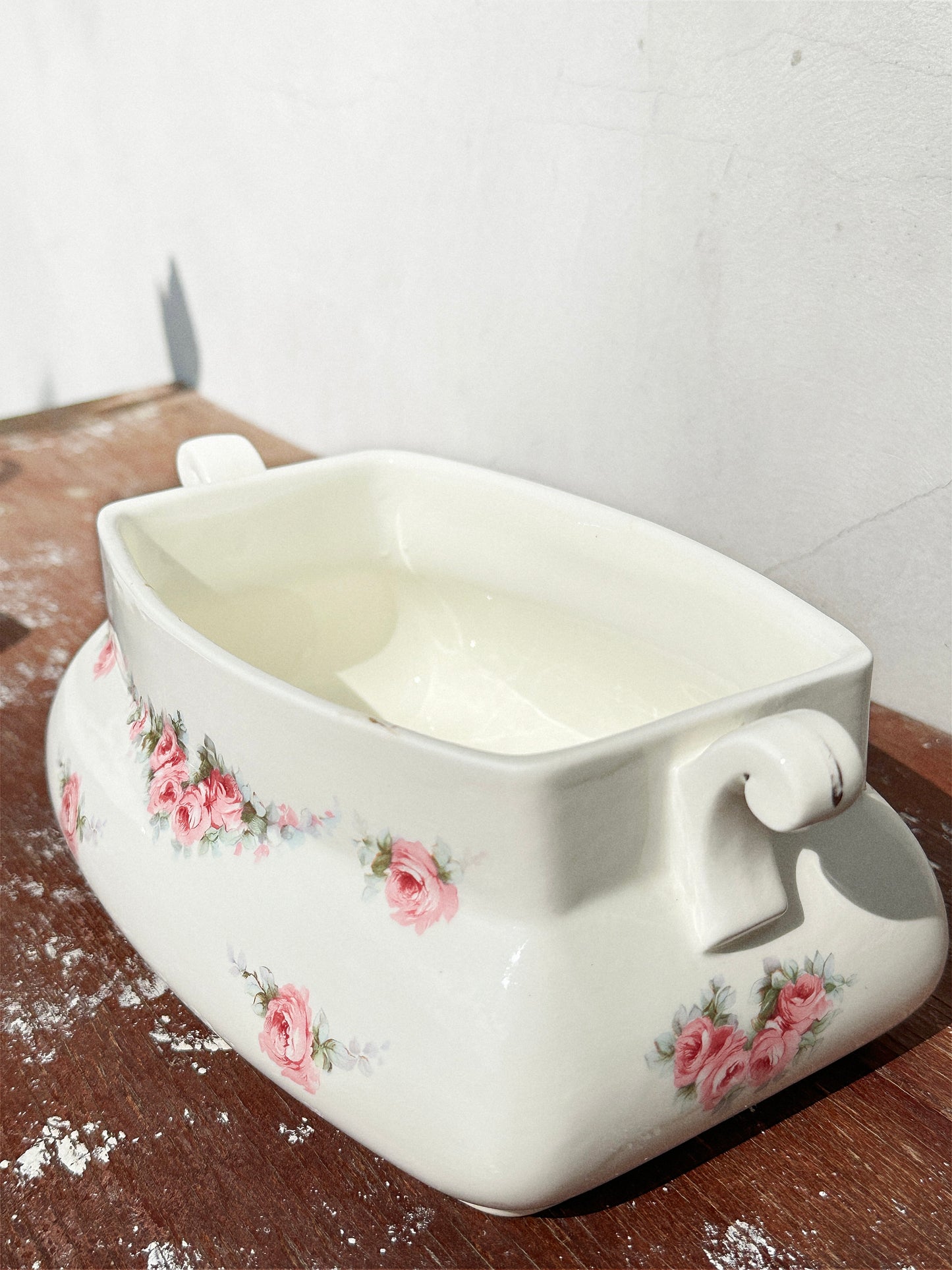
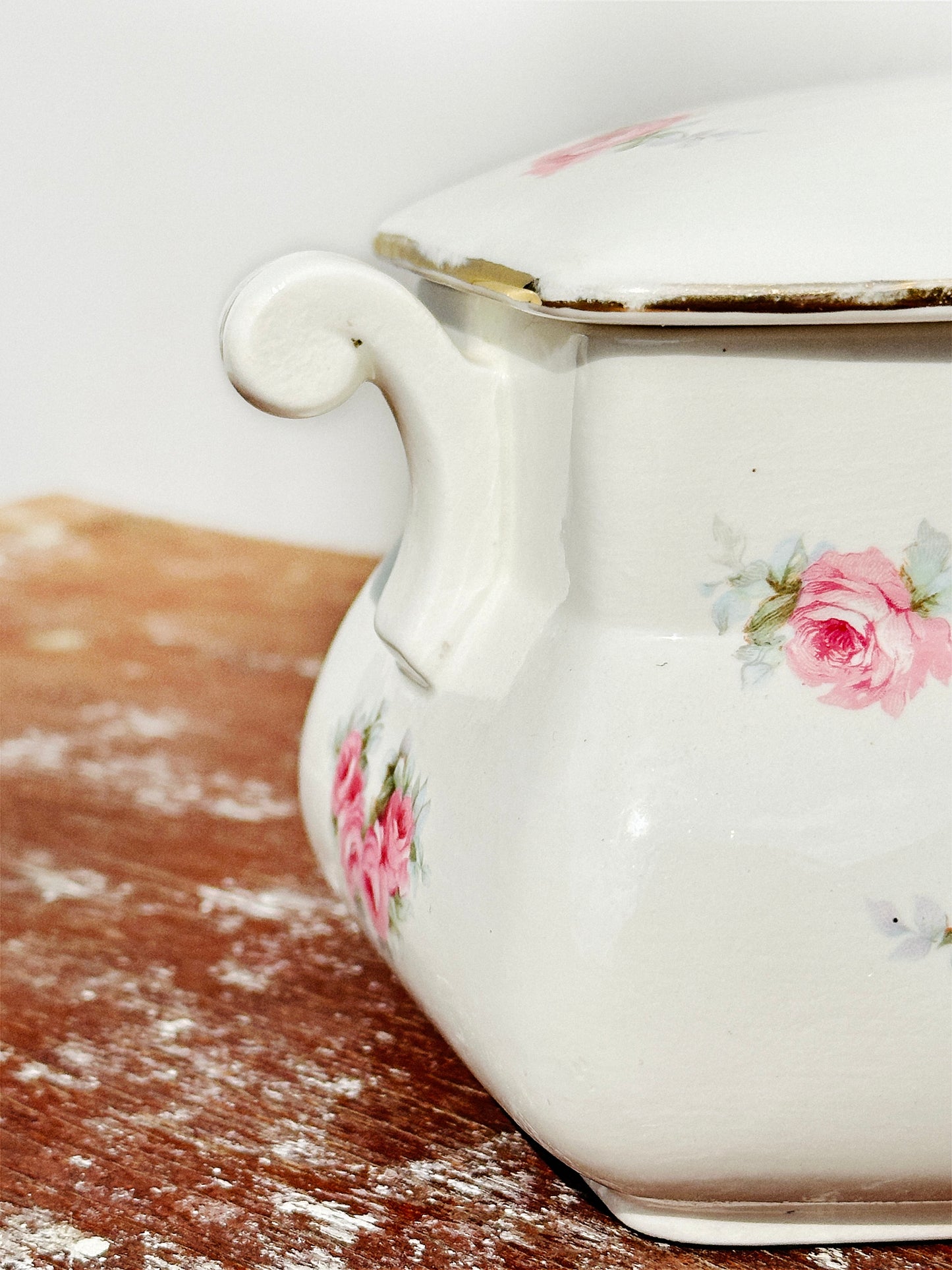
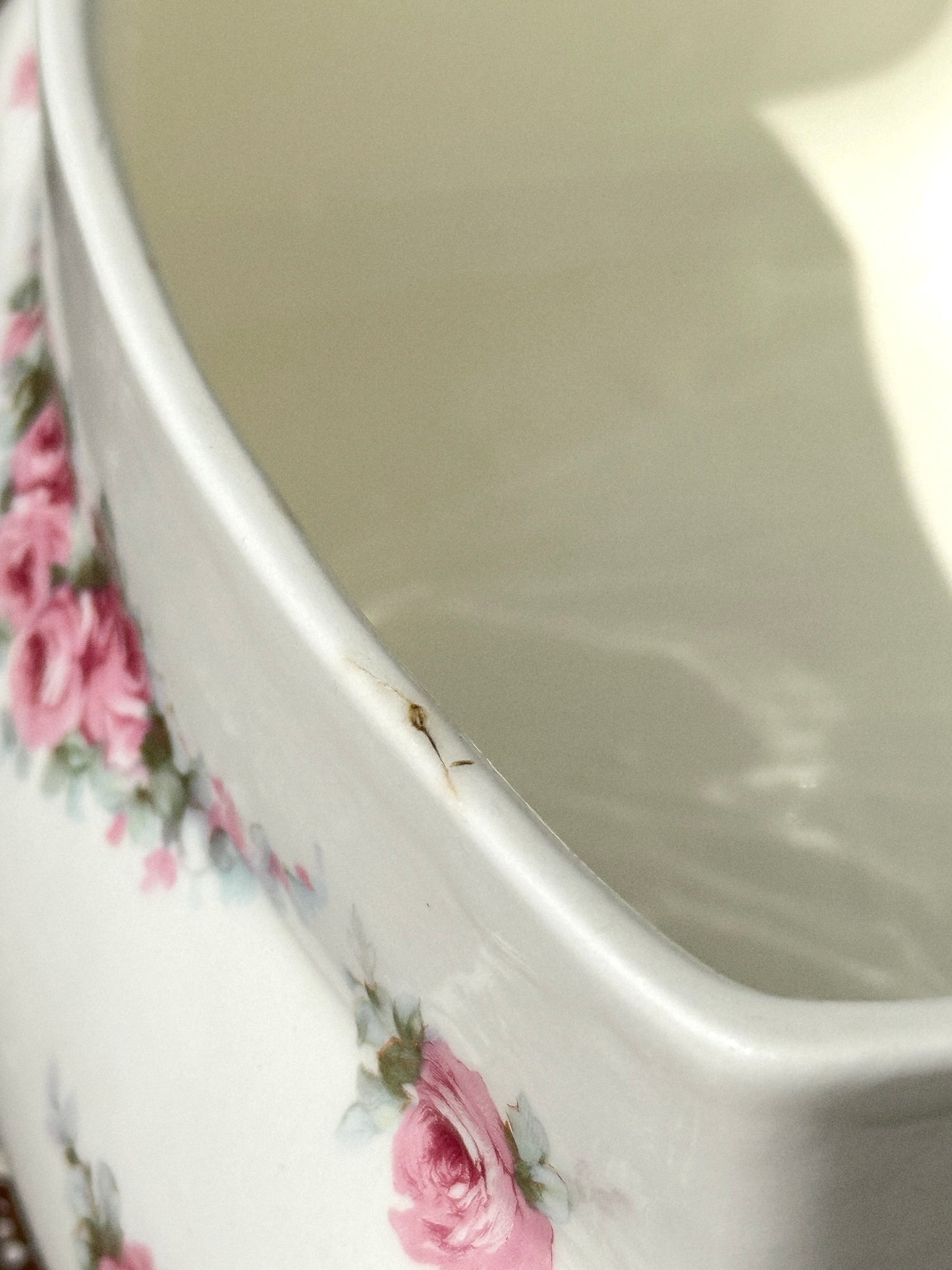
![OBOL [beyond vintage]](http://obol.ro/cdn/shop/files/obol_140_x_70_mm_50_x_20_mm.png?v=1736338530&width=600)









